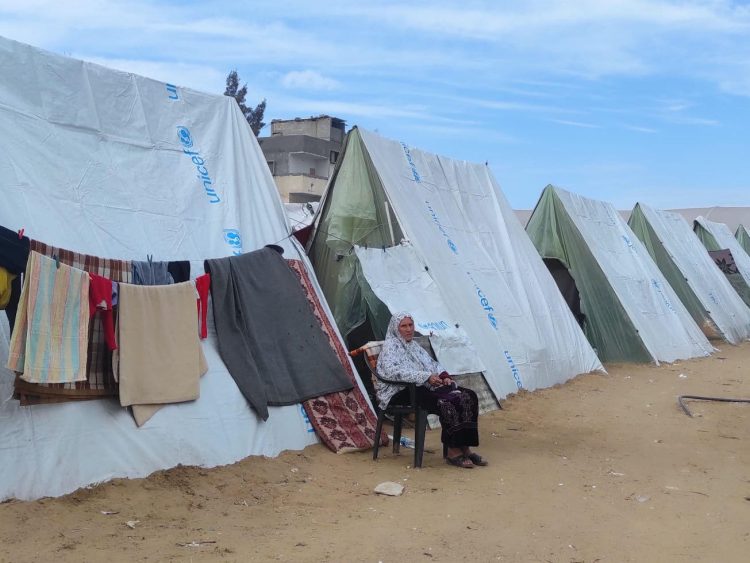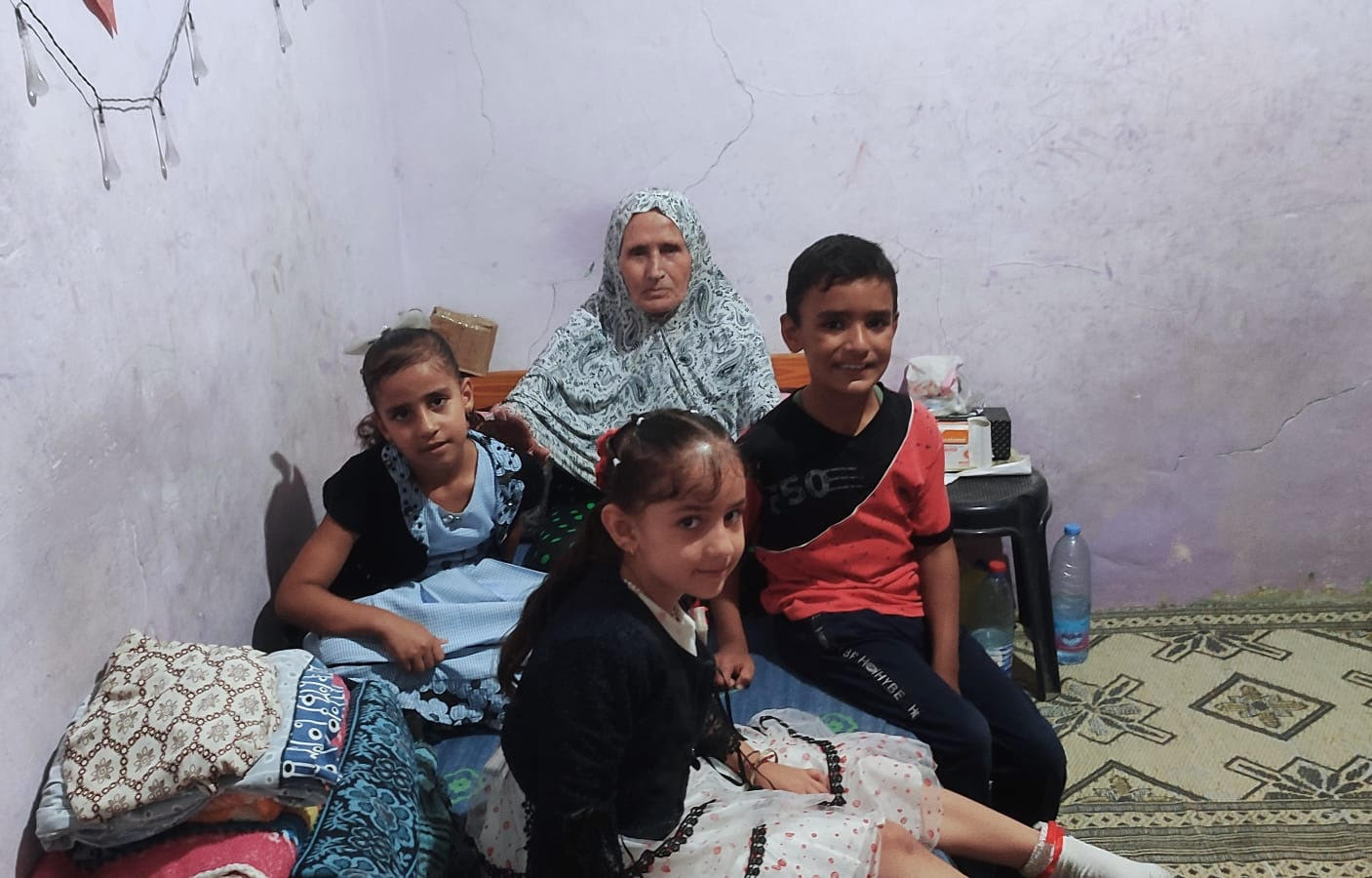“The shrapnel shredded the asbestos sheets over our heads. My sons had to cover it with plastic to prevent the rainwater from pouring into the room. They even placed a bowl above my bed so any leaking water wouldn’t fall on me while I slept. This year has been worse than all the past catastrophes combined,” These are the words of Saada (or Umm Mohammad), an older woman from the Nuseirat refugee camp in central Gaza, describing her suffering amidst the ongoing war that has ravaged Gaza for over a year.

Born in 1944, Umm Mohammad experienced the Nakba – the mass displacement of Palestinians during the 1948 Arab-Israeli war – at the age of four. She grew up in mud houses, many of which have since disappeared, and still lives in one that has been passed down through her family.
For Umm Mohammad, this war is the worst she’s ever seen. “The previous wars that I have seen and been through were not as vicious as this one. Now, we are being hunted, homes are being destroyed, and entire families are being erased from existence.”
“When this war started over a year ago, I was displaced to Rafah, in the south of Gaza, where I lived in a tent. We suffered terribly from the unbearable heat, diseases, and lack of access to toilets or clean water. Tents are not meant for living, not for a dignified life. I couldn’t perform my ablutions or even take a shower—tents are a humiliation to humanity,” she says.
Umm Mohammad eventually returned to her old modest home. “Bullets and shrapnel rain down on us due to the nearby explosions all the time, but even that is better than living in a tent,” she says.
Before the war, Umm Mohammad had undergone surgery on one of her eyes due to blindness. But with the blockade preventing the entry of necessary medications, her recovery took a cruel turn.
“My eyesight is failing again,” she says with a heavy voice. “I used alternative medicine, but it only made things worse. Now, there’s no original or substitute medication available. The pain is unbearable, and it stops me from doing even the simplest tasks.”
Her failing vision is not her only health challenge. Umm Mohammad also suffers from multiple chronic conditions, including thyroid problems, high blood pressure, and shortness of breath. But the blockade of vital medications into Gaza has left her and many others desperate for relief. “I fear for my life without access to these medicines,” she says.
Umm Mohammad’s thoughts then turn to family members who have passed away, their memories flooding her mind as she speaks about the struggle for medication. “Several of my older relatives couldn’t get the treatment they needed for their chronic illnesses, so they simply died.”
Umm Mohammad is a mother of nine, all of whom live nearby. Her children and grandchildren visit her often, bringing some much-needed joy to her life. But her deteriorating health and difficulty walking due to pain in her legs prevent her from visiting them.
Despite the immense suffering and hardships, Umm Mohammad’s resilience remains unshaken. Though war has robbed her of comfort and health, it has not taken away her spirit and she continues to draw strength from her family and her faith.

